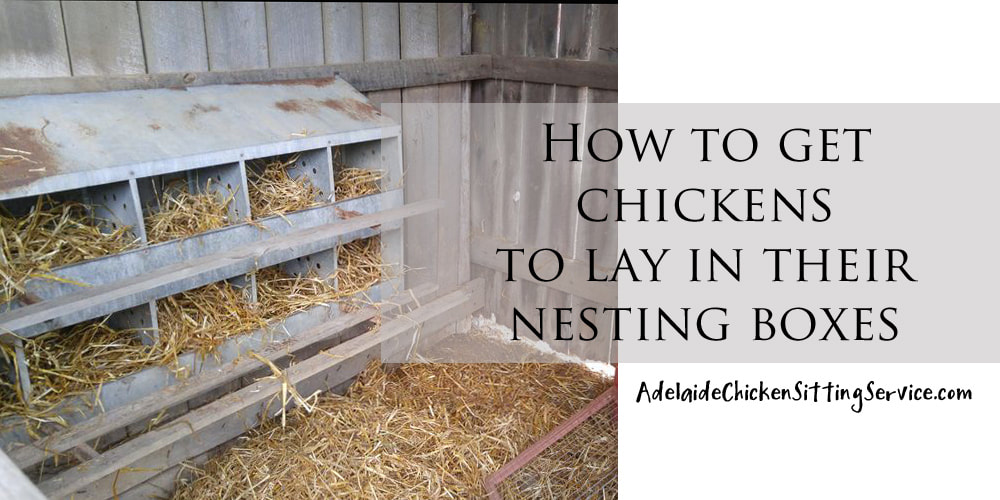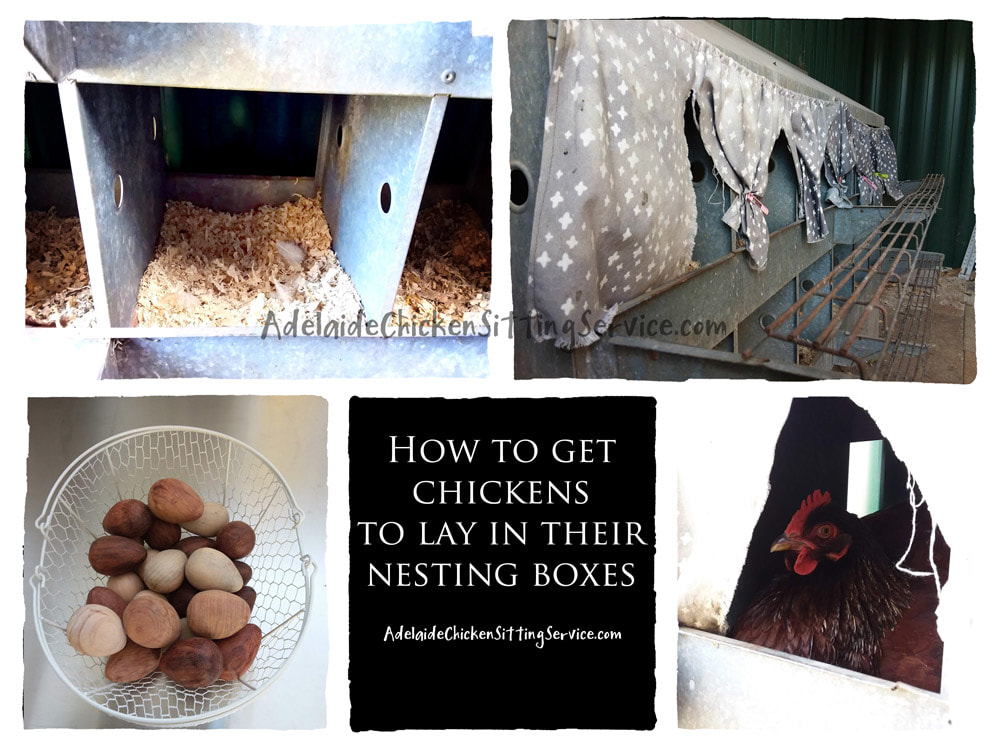There are some good ways to help guide them.
BUT before I answer that...
So why shouldn't the hens lay anywhere they want?
- Serious egg hunt - are the girls even laying?
- Overlooking a new place one of the hens has started laying = rotten eggs
- Eggs laid on the ground are more likely to either be stepped on, covered over with flooring materials or become food for predators.
- Dirty eggs are more prone to salmonella, such as being laid in their poo under roosting rails.
- Higher breakage rate = egg eating problem
Best ways to get hens to use their nesting boxes
- Do NOT use the same materials on the floor inside of the nesting boxes.
Make sure that the nests are distinctive and inviting.
(It is not always necessary to have flooring materials if the hens are free-ranging all day - save $$) - Place a wooden or plastic egg in each nesting box - they will want to sit on it. For training ONLY.
- Make the nesting box is private. Curtains or a dark, draft free spot near the back of the shed are the best locations.
- If you see your girls trying to lay somewhere else, pick her up and place her in a nesting box, as training.
- Make sure that they nesting boxes are ready from the first day before they start laying. Their exploration time is important.
- Use only these materials:
- Chopped straw
- Wood shavings
- Hemp - Avoid these materials:
- Whole straw - hollow materials create spaces for mites and lice to hide in.
- Sugar can mulch - the dust can cause respiratory issues in some chickens
- Newspaper - it is not absorbent or soft enough to prevent egg breakage - Put a thick amount of nesting materials in each box to prevent egg breakage.
- Place a piece of vinyl/lino in the bottom of each box for easy cleaning, especially if an egg does break.
- Dust each nesting box with Pestene or Diatomaceous Earth (DE) BENEATH the materials to deter lice and mites.
- Clean out nesting materials on a regular basis - refresh once a season or half yearly.
- VERY IMPORTANT: Please do NOT let your hens SLEEP over night in their boxes - train them to perch at night.
The reason is because they poo throughout the night and are more susceptible to contracting lice and mites.





 RSS Feed
RSS Feed